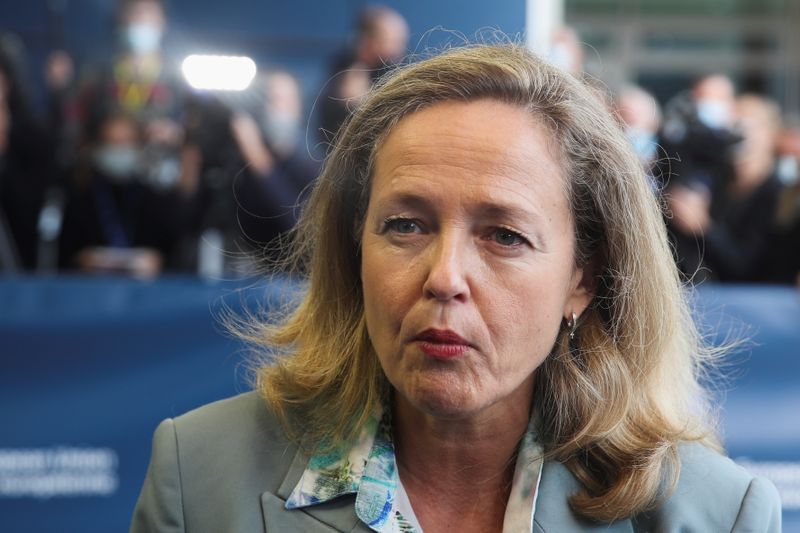By Jan Strupczewski
LUXEMBOURG (Reuters) -France and Spain on Monday called for a coordinated European response to the surge in global energy prices to protect Europe's poorest citizens, the competitiveness of its businesses and its 2050 plan to cut greenhouse emissions.
The call, along with ideas shared by European Union governments during talks between euro zone finance ministers in Luxembourg, would complement the European Commission's work to address the energy price spike, the chairman of the meeting said.
Gas prices in the European Union surged to record highs on Friday as the bloc's main gas supplier Russia kept a tight lid on deliveries, signalling further price pressures on European consumers heading into the winter heating season.
While the ministers agreed the inflation spike caused mainly by energy costs was temporary and would subside in 2022, it was worrying and needed monitoring.
"What we see is an unprecedented spike in energy prices," Spanish Finance Minister Nadia Calvino told reporters on entering euro zone finance ministers' talks in Luxembourg.
"This is not an issue that we can tackle at national level, we need a European coordinated response," she said, adding her country had prepared a paper on the possible options.
One of the ideas presented by Spain was to set up a strategic European gas reserve, which would help the 27-nation bloc of 450 million consumers negotiate lower prices, the Spanish paper, seen by Reuters, said.
"We can and should increase our bargaining power," the paper said. "This requires a centralised European platform to purchase natural gas. We have done it quite successfully for vaccines and should reproduce this model to other strategic fields such as this one," it said.
Spain also wants to stop speculation on the market for CO2 emissions permits, which drove up prices, the paper showed. "A bubble on EU Emissions Trading System (ETS) is the last thing we need. The EU ETS trading should not be available to all agents, especially not to speculators with market power," it said.
HIGHER ENERGY PRICES AN ISSUE FOR YEARS, NOT MONTHS
French Finance Minister Bruno le Maire proposed better regulation of European gas stocks and a de-linking of the price of electricity from gas prices in favour of tying it to the average cost of production in every EU country.
"The European energy market has one key advantage - it secures the supply of energy everywhere in Europe. But it also has one major downside - the alignment of electricity prices with gas prices," le Maire said on entering the talks.
He stressed such a link created a "dead end" for Europe's transition towards renewable energy sources as the higher electrification effort of moving away from combustion engines, would only end up in higher prices if they continued to be linked to a fossil fuel like gas.

He also said the fight against climate change will entail a long-term increase in energy costs because of the existing link to gas prices and the high investment needed into renewable energy sources and nuclear power plants.
"For years, not months, we will have to face an increased level of prices," le Maire said, adding that high energy prices would be "one of the major political issues for the coming years".